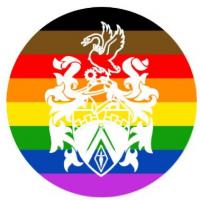English PhD
English at Brunel has gone from strength to strength over the last decade to the point where it is now regularly ranked in the top ten English departments in the UK in the Guardian league tables. We have a thriving graduate community, and welcome PhD applications in any of our particular areas of strength, which include modern and contemporary literature, Shakespeare, Renaissance studies, Victorian literature and culture, and world literature in English.
Research in the area of contemporary literature and culture is clustered within the Brunel Centre for Contemporary Writing (BCCW). The BCCW organises regular research events and the annual Hillingdon Literary Festival. It also runs the popular MA in English programme at Brunel. A BCCW branded book series, ‘British Fiction: The Decades Series’ is published by Bloomsbury Academic.
Benefits for students
This research culture benefits undergraduate as well as postgraduate students. At Brunel, all of your lecturers are actively engaged in research or creative practice. This means that you will be introduced to cutting-edge issues and practice in your modules, by experts who participate in the development of the field. At level 3, specialist modules involve students in advanced and in-depth study of subjects in which lecturers share a particular research interest.
A full description of staff research interests, and the kinds of projects which each staff member can supervise, is now available. Some past research projects undertaken by faculty at Brunel include:
War, heroic masculinity, and the body in the early modern period
Exiles, refugees and migrants in the early modern world
The rise of print and propaganda in the West, c.1450-1750
Writing and rewriting history in early modern Europe
The Reformation in print
Fantasy writing of the 19th and 20th centuries
20th/21st century comparative studies
Mass-Observation and Everyday Life
Working-class and proletarian writing
Modernist and postwar women's writing
Transnational modernist studies
Popular fictions, popular culture and consumption
Radical politics and aesthetics
Gender studies
Queer studies and sexuality studies
The New York School and the avant-garde
Postcolonial literature and theory
Caribbean and migrant fiction
World Literature
World-systems theory, development studies, global capitalism
Postwar science fiction
9/11 and the traumatological
Narrative analysis
Contemporary global fictions
Contemporary British fiction
The break-up of Britain as represented in contemporary fiction
Intakes
- Jan
- April
- Oct
Application Processing Time in Days: 30
Minimum English Language Requirements
| English Level Description | IELTS (1.0 -9.0) | TOEFL IBT (0-120) | TOEFL CBT (0-300) | PTE (10-90) | |
|---|---|---|---|---|---|
| Expert | 9 | 120 | 297-300 | 86-90 | |
| Very Good | 8.5 | 115-119 | 280-293 | 83-86 | |
| Very Good | 8 | 110-114 | 270-280 | 79-83 | |
| Good | 7.5 | 102-109 | 253-267 | 73-79 | |
| Good | 7 | 94-101 | 240-253 | 65-73 | |
| Competent | 6.5 | 79-93 | 213-233 | 58-65 | |
| Competent | 6 | 60-78 | 170-210 | 50-58 | |
| Modest | 5.5 | 46-59 | 133-210 | 43-50 | |
| Modest | 5 | 35-45 | 107-133 | 36-43 | |
| Limited | 4 | 32-34 | 97-103 | 30-36 | |
| Extremely Limited | < 4 | < 31 | < 93 | < 30 |
Job Opportunity Potential
Making effective applications
Preparing for interviews
Make the most of your careers service, throughout your degree and beyond
Where could your degree take you?
Build your career while studying and gain an insight into the range of paths open to you
Skills Awards and Programmes
Build the skills employers look for with Ready, Brunel+, BSIP, and professional mentoring
Moving on as a graduate
We're still here for you after you finish your degree - up to 3 years after graduation
PSW Opportunity
2 Years PSW is applicable after the course completing (Bachelors level or above)
Admission Requirement / Eligibility Criteria
The general University entrance requirement for registration for a research degree is normally a First or Upper Second Class Honours degree (1st or 2:1).
An interview may be required as part of the admissions process, and if so it would be conducted by one of the academic staff members remotely via Skype, phone or other means.
A minimum score of 55%-75%. Offers within the grade range are determined by the higher education institution attended.
If you require a Tier 4 visa to study in the UK, you must prove knowledge of the English language so that we can issue you a Certificate of Acceptance for Study (CAS). To do this, you will need an IELTS for UKVI or Trinity SELT test pass gained from a test centre approved by UK Visas and Immigration (UKVI) and on the Secure English Language Testing (SELT) list. This must have been taken and passed within two years from the date the CAS is made.
English language requirements
IELTS: 7 (min 6 in all areas)
Pearson: 64 (51 in all subscores)
BrunELT: 70% (min 60% in all areas)
TOEFL: 100 (min 20)
- Course Code: ENGLRESDFTD
- Course Type: Full Time
- Course Level: Doctoral Degree/PhD
- Duration: 03 Year
-
Total Tuition Fee:
53625 GBP
Annual Cost of Living: 12006 GBP
Application Fee: N/A

